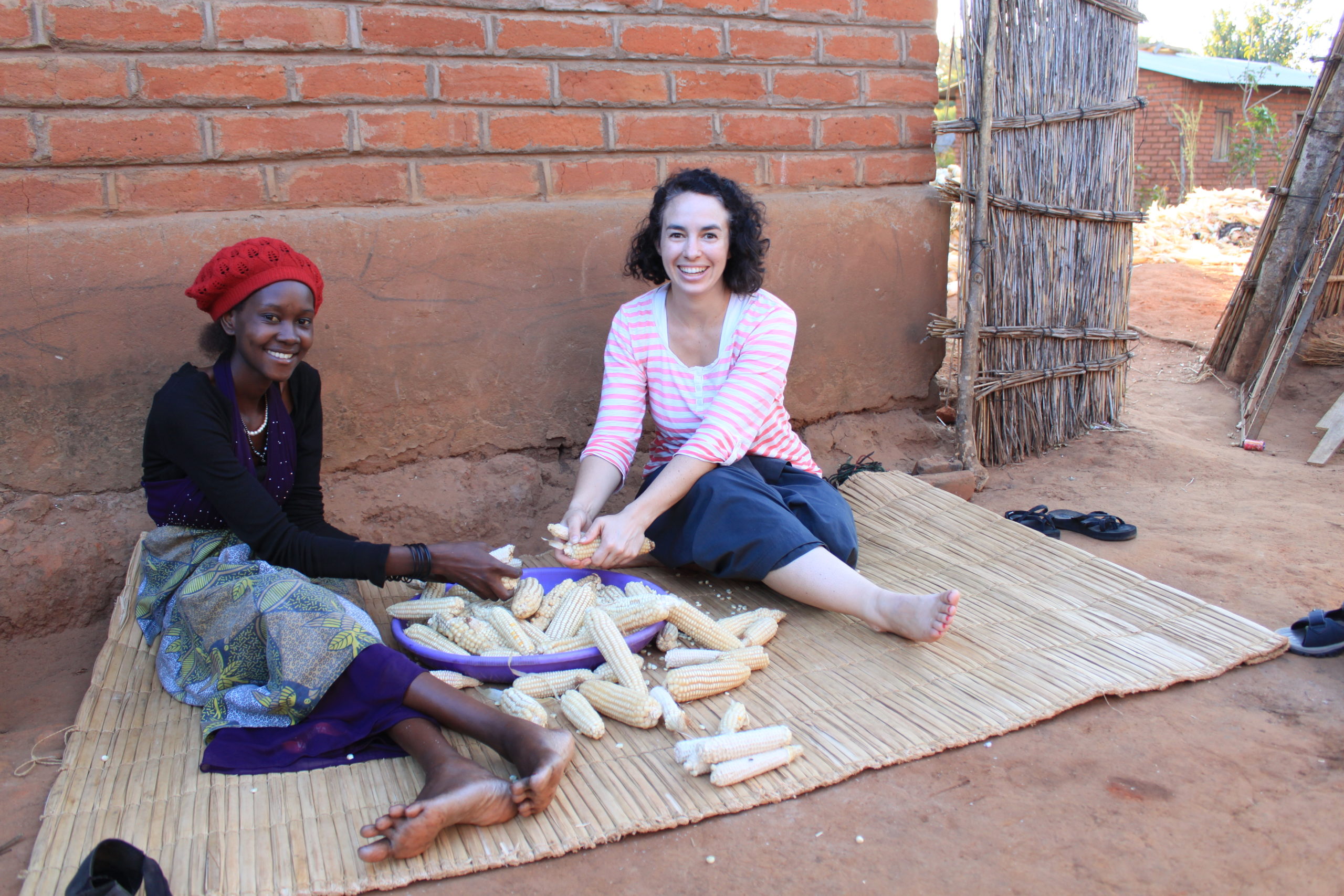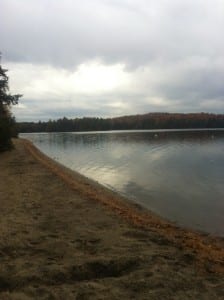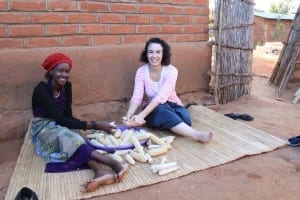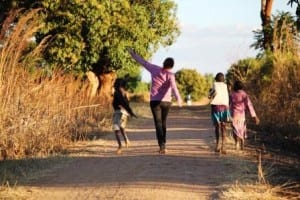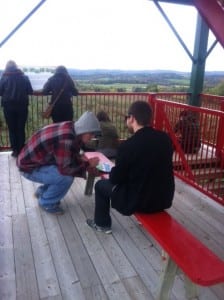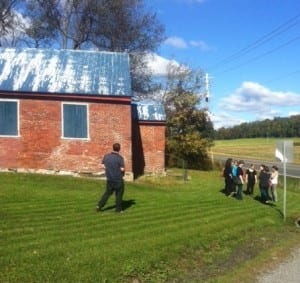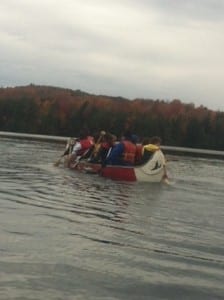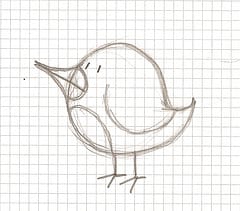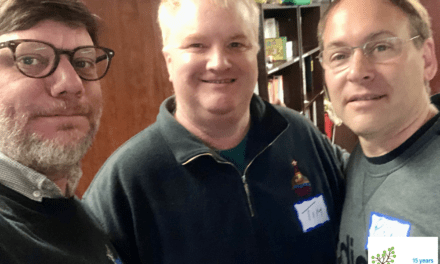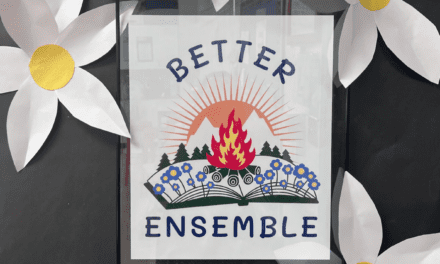I have had the pleasure of working with pre-service teachers since 2003. My years at McGill and now Bishop’s University have been filled with countless hours of joy, discovery, debate, and of course learning. Throughout this school year, I will be writing about some of the incredible moments that I have been fortunate to share with the pre-service teacher community. These narratives will allow you to peek into a world that you might have forgotten. Their stories will offer hope for the future and will undoubtedly inspire those of us in the field presently to take a risk or two in our own teaching practice, our pedagogy and the ways we engage with our students.
I hear and I forget, I see and I remember, I do and I understand. ~ Confucius, 450 BC
Experiential education is the process of actively engaging students in an experience that will have real consequences. Students make discoveries and experiment with knowledge themselves instead of hearing or reading about the experiences of others. Students also reflect on their experiences, thus developing new skills, new attitudes, and new theories or ways of thinking (Kraft & Sakofs, 1988). Experiential learning is also referred to as learning through action, learning by doing, learning through experience, and learning through discovery and exploration. A key element of experiential learning, therefore, is the student, and that learning takes place as a result of being personally involved in this pedagogical approach.
At its core, Experiential Learning can be defined as a process that:
• engages students in direct and active interactions with objects or phenomena in the immediate environment, usually through the use of one or more senses (observing, feeling, hearing, smelling, tasting, and intuition)
• moves away from textbooks as the central or sole repository of knowledge
• involves a continuous exchange between students’ immediate experiences and their personal reflections in order to reassess previously held beliefs and influence future experiences and behaviour (Dewey, 1938)
• seeks to transform experience into newly formed knowledge (Kolb, 1984)
What follows are excerpts from the reflections of five pre-service teachers who have been immersed this past year in Experiential Learning Projects. Whether the experience took place half way around the world or in their local community, the one thing that is clear from their writing is that these endeavours were transformative and will indeed have a lasting impact on their future classrooms and the students they will teach.
Linden Parker: McGill third year elementary B.Ed student, Praxis Malawi Project 2013
With one last day to pack, enjoy the village, and spend time with this group that has become my family away from home, I can truly say that this entire trip has delivered a greater depth and breadth of experiences than I could ever have imagined. The weekend excursions and our interactions with the warm and welcoming villagers is all icing on top of the cake, which was the fact that we managed to create a unique final product that will hopefully bring about positive change for the next generation of Malawians. I am excited to stay in touch with the group as they continue to work over the next week or two and then to maintain an ongoing communication with the teacher who will be putting the curriculum into action. While I am happy with the contribution I have made to the project during my stay in Malawi, it is pretty amazing to know that it does not have to be over. I think that this is making it easier to say goodbye. In the long-term, I look forward to following the progress of the school’s development and hope it does reach its final goal of establishing an adult education program. We are starting with the youngest learners and plan to build a new classroom each year, slowing increasing the number of people who are encouraged to think critically, creatively, and innovatively. The hope and empowerment of initiatives such as this one is inspiring, and if community members continue to pursue sustainable development initiatives on their own, the potential is limitless. With my entire career as a teacher ahead of me, I can only say the same for myself. If I continue to challenge myself as I have done here and draw upon the resources around me, the potential is limitless.
Naomi Crisp: Bishop’s fourth year elementary B.Ed student, Praxis Malawi Project 2013
Everyone was working well and enjoying the process of creative lesson planning. We were all so impressed with each other’s ideas and naturally wanting to adopt them in our own classrooms. It is an amazing process to observe as well as be a part of. Seeing individual faces as they think of a great lesson or they hear a group member’s suggestion and their mind forms a picture of it is just awesome. It is great to see teachers so excited about their profession! I wouldn’t have thought I would get so excited about curriculum development but I can’t wait to do more! The critical thinking and creativity that go hand in hand with this process is enticing and always asking for more. I can’t express how grateful I am to be here and doing this project…This evening I lay in my room listening to music and thinking about the consistent questions that have been running through my head about my place here. After seeing our work today and how involved Thomas, Cynthia (pre-service Malawian teachers) as well as Francis (our organizer for our advance work) all are in the project I feel that we are not out of place developing the curriculum here. I have come to the conclusion that it is no different than going up to Cree territory and teaching there. It is a place and culture I don’t know and have never been exposed to in my own country yet I wouldn’t doubt myself or others for teaching up north. If you do advance work and gain an understanding of the people and geography/history of the area and you’re willing to adapt, you can teach. We have not come to Malawi to disrespect the system here, but rather enhance education opportunities for a rural area. The people have been so welcoming of the project and I think it is time that I actually accept their welcome with a Malawian handshake and “zikomo”.
Erin Flynn: Bishop’s fourth year secondary B.Ed student, Apple Orchard ELP
Overall, I would rate this ELP experience a success. During the planning stages of the field trip, it became so easy to connect the curriculum to the trip. With each idea, we found ourselves making sure to ask the question “so why is it absolutely essential to the student learning for them to physically be at the orchard to better understand this concept?” As far as my part was concerned, the history of the industrial revolution (and ultimately of change in the Eastern Townships and rural areas), I found it absolutely imperative that students receive a true representation and visual preservation of what farming in Quebec was and is like, in order to better understand why change occurred and how these changes have affected the current situation…It is not enough anymore to just see a picture and obtain deep and meaningful understanding…there is so much culture and history being represented right in our backyards that the students don’t know to look for. For example, when was the last time you went apple picking and thought of the choices of buying local, sustainable and environmental practices, effects on bees, Canada’s beautiful landscapes depicted in local art, or the effects of industrialization? We took an activity that is familiar to students and gave it a new spin.
The aim we have as new teachers is to make students question. In order to stay motivated, students need to ask questions about their surroundings, make deeper meaning from what is around them, and learn to be critical and informed in their daily practices and decisions. While our goal is for the students to take away educational insight that deepens their understanding of the curriculum, the ultimate goal is to make students explorers, detectives, uneasy, confident, researchers. Students need to know that they do not have to accept the world around them as it is, but rather the more they question, the better they can inform and implement change.
Emilie Bowles: Bishop’s fourth year secondary B.Ed student, Colby-Curtis Museum ELP
In terms of the development of my understanding of curriculum, I think that I now know a great deal more of what it really takes to develop an interdisciplinary learning experience…As history of the study of the past in general, there is quite a lot of room for student exploration and discovery in whatever direction they choose to focus on, be it the history of art, literature, politics, economics, etc. There really is something for everyone.
On a more personal note, the organization of this project provided me with my first hands-on archival experience. Kathy, the archivist at the Colby-Curtis museum gave me the amazing opportunity to look at and touch old report cards, teacher certificates, curriculum documents, and teacher letters to add to my background research of education in the Eastern Townships in the 19th and 20th centuries. I was beyond excited and I can’t believe that I got through my Social Studies major without ever having come in contact with actual primary documents. The reason that I’m mentioning this is because these documents, in addition to the physical building of the Mansur schoolhouse, gave me a stronger feeling of connection with the past. I had experienced the past in a more authentic way than I ever could in the classroom. This is why I can’t wait to implement these kinds of learning experiences in my own future classroom.
Lara Willis: Bishop’s fourth year secondary B.Ed student, Camp Wilvaken ELP
Our goal was to have the learning come from our students and let them create the experience. We had guidelines for what we wanted to happen and back up plans for “things gone wrong” but we hardly touched on those! From the car ride, to getting everyone into canoes to running around the woods creating a post-apocalyptical survival experience, it seemed like all our students really took something away from the experience. I know that this is a project that I would put together with my own colleagues if placed in a school nearby. There is nothing better to build a community than being away from your regular setting and forced to work together…Taking everyone away to camp for a short afternoon increased our team work and our confidence in one another. We were finally broken into groups of people whom we don’t usually work with and taken out of our comfort zone to create something new and unprecedented. If this helps with university students’ cooperation and sense of community then I believe that it will be just as beneficial, if not more for my high school students. We see a whole other side of people when they are in the outdoors and able to explore new places…This is the type of ELP which has more than just subject-specific learning material. I believe that this can help students build a community, stop bullying and create leaders… It’s extremely important to help students going through their adolescent transition by getting them to meet new people, discover new sides to themselves and finding interest in something that they may never have experienced before…As our teacher obligations state, we are not only in school to teach factual information, but we are also there to guide our students to become interpreters of the world and contribute to their overall personal development… Overall, I believe that this ELP brings invaluable experiences to our students’ lives.
I hope some of you will share an Experiential Learning Project you have done with your students along with a reflection of what this type of teaching has brought not only to their lives but to yours as well.

